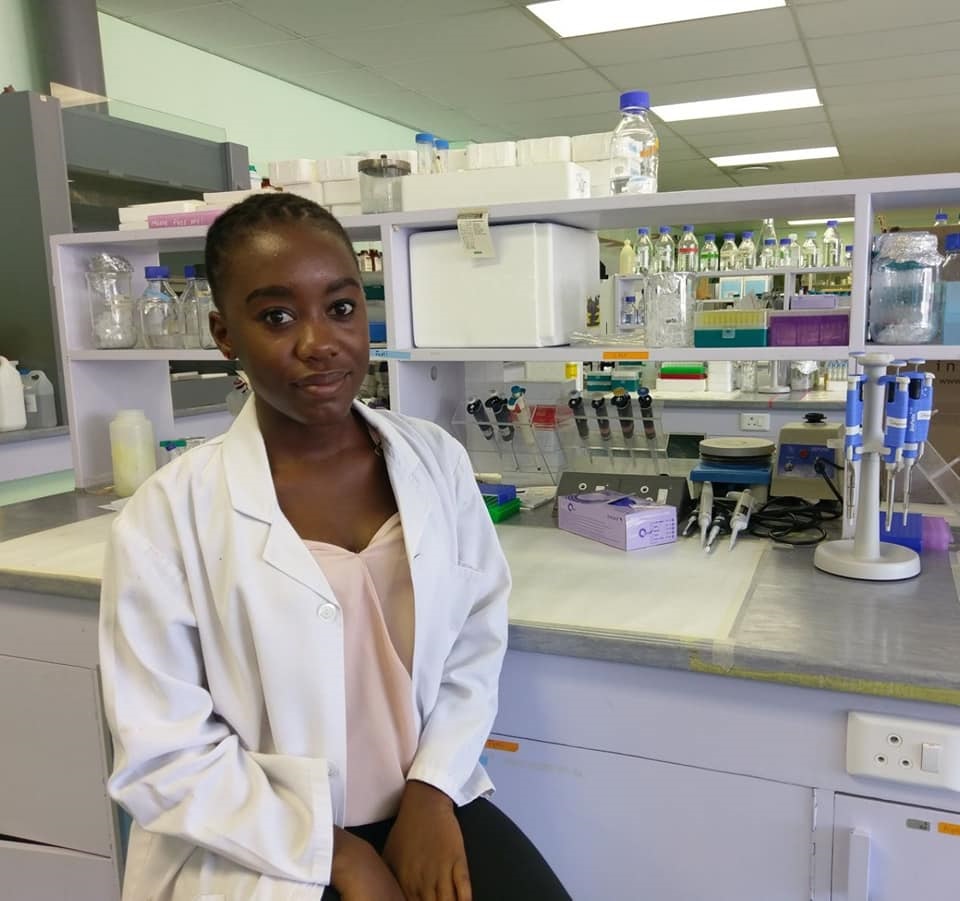
Amokelani Mahungu, a master’s student focusing on the study of human genetics is passionate enough to fight for her place as a young scientist. The 25-year-old, who is studying at the University of Stellenbosch, has dedicated her life to the field of science, something she says her family has not taken to.
February 11 marks the International Day of Women and Girls in Science, and Mahungu chatted to City Press about her journey into the field of science.
“I knew I wanted to become a scientist since I was a little girl, but the scope of my knowledge was very limited. I always had this picture that a scientist should be an old white man with a beard who looked a little bit crazy.”
Mahungu hails from Soshanguve, a township north of Pretoria, where she and her two younger sisters were raised by their single mother and grandmother. Her love for reading and curiosity to source information on various topics led her family into thinking that she would one day become a doctor, but she defied their expectations.
“I realised I wanted to enter the field of science when I was in university. In the third year of my studies we had a course on human genetics which I really enjoyed. I found it both interesting and concerning how so many diseases have a genetic aetiology [origin] that is not fully understood and how most people are not even aware of it.”
Mahungu completed her undergraduate and honours degrees at the University of Pretoria before being accepted into the master’s programme at Stellenbosch. The rest, they say, is history, as Mahungu’s discovery during her honours year spurred her interest in pursuing her masters.
“It was a little bit scary because most of my friends and family members thought I was crazy; that people like us cannot become scientists. They said that after my first degree I should have just found a job.”
Despite the reservations that her family had, Mahungu knew she had to continue – the research was too compelling to give up on.
“During my honours year I started to read a lot about Parkinson’s disease. For an assignment, we had to come up with a hypothetical research project and you had to choose the scope of the research. I happened to choose Parkinson’s disease because at that time I couldn’t read any scientific paper unless it was related to it. That is how I found [Professor Soraya Bardien]. I was amazed that she was a woman of colour and she had her own research group,” she said.
Now under the supervision of Bardien, an internationally recognised scientist in the field of human genetics with a focus on Parkinson’s disease, Bardien assisted Mahungu to write her proposal for her master’s project.
Read: Science is not just for nerds, says leading researcher
“My current project is focused on defining genetic factors contributing to Parkinson’s disease in South African populations, because studies on our local populations are limited.”
Mahungu says that her challenges have ranged from securing finances for her studies to her skin colour, but that it hasn’t deterred her drive to succeed.
“One of the challenges was continuing to believe in myself in a world that makes you feel less than because of your gender and colour of your skin. A constant struggle is believing I am worthy to be where I am, that I belong, and I am more than capable to lead research and lead my life. It is also a challenge to continue science because my family does not understand. I often feel the pressure that I need to make money to support my family.”
Mahungu says that within the research space, male scientists still garner more support, making it that much more difficult for young female scientists to grow.
“Seeing people only supporting male scientists and how women are still treated unequally is a huge challenge. The majority of well-established scientists are white males.”
Character development has helped Mahungu along her journey. She urges young girls to push through their fields of research.
“To young girls who are looking to enter the science sector, I know it’s not easy. It may look like there is no representation of people like you in the field but be brave enough to take up the challenge and persevere. If not, other girls like you will not believe they can make it, because they will see no representation of themselves.”
The young scientist hopes for a South Africa that is inclined towards scientific expertise in trying to eradicate things like diseases.
“For a country like South Africa, it is important for us to strive towards innovation and invest in science. We have so many challenges that they really require a holistic and sympathetic approach. A majority of the population is affected by things like lack of access to adequate healthcare, education and job opportunities. What we have been doing over the years is clearly not working.”
| |||||||||||||
| |||||||||||||




 Publications
Publications
 Partners
Partners








